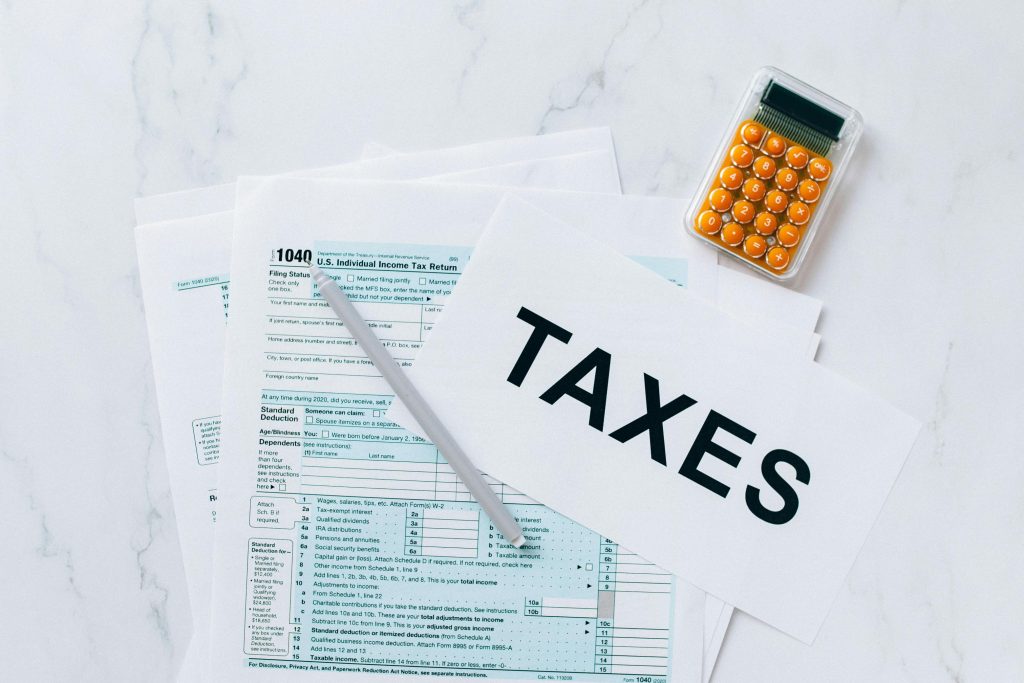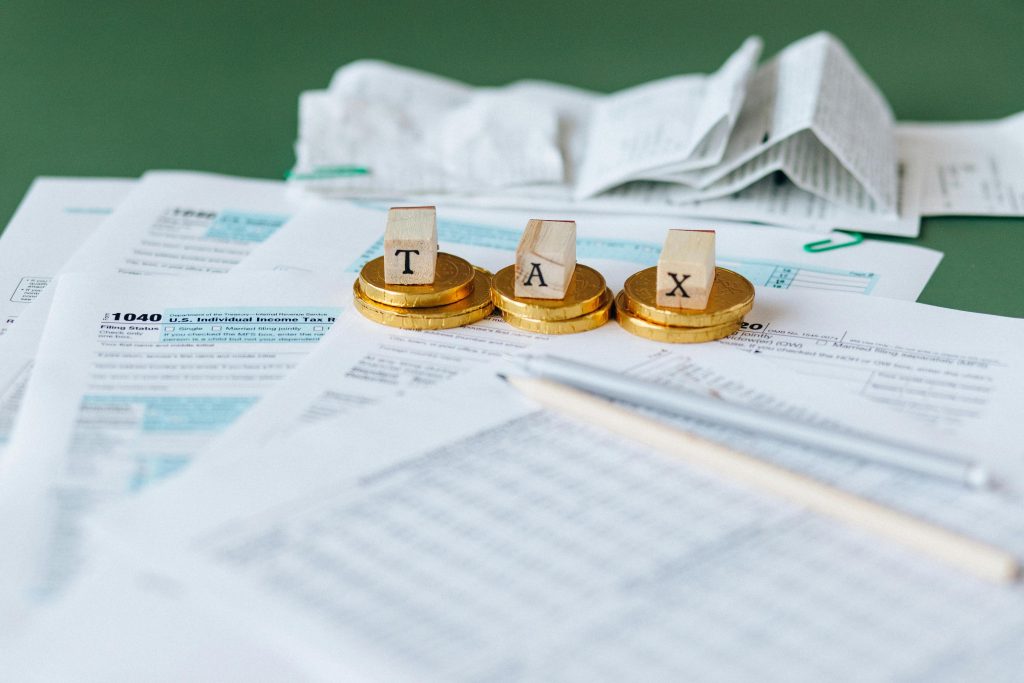Homeownership comes with various responsibilities, and paying property taxes is one of them. If you have an escrow account, you might assume that your property taxes are being taken care of automatically. So, it can be surprising to receive a property tax bill even though you have an escrow account set up with your mortgage. This situation often raises concerns and questions for homeowners: Why did I get a property tax bill if I have escrow?
In this article, we’ll dive into the reasons why you might receive a property tax bill despite having an escrow account, how the escrow system works, and what steps you can take to resolve the issue.
Understanding How Escrow Accounts Work
Before exploring the reasons for receiving a property tax bill, it’s important to understand how an escrow account works and how it’s used to pay for property taxes.
What Is an Escrow Account?
An escrow account is a financial arrangement used by lenders to collect and manage payments for property taxes and homeowners insurance on behalf of the borrower. When you have a mortgage, your lender may set up an escrow account to ensure these expenses are paid on time. As part of your monthly mortgage payment, a portion goes into the escrow account to cover these costs, so you don’t have to worry about paying large lump sums when taxes or insurance premiums are due.
How Does an Escrow Account Work?
Each month, a portion of your mortgage payment is allocated to the escrow account. The lender uses this account to pay your property taxes and homeowners insurance when they come due. The amount collected is based on an estimate of your annual property tax and insurance costs, divided into monthly installments.
Here’s a simple breakdown of the process:
- Monthly Payments: You make monthly payments to your lender, which include both your mortgage and contributions to your escrow account.
- Escrow Account: The portion for property taxes and insurance goes into the escrow account.
- Payments: When your property taxes are due, the lender uses the funds in the escrow account to pay your local tax authority on your behalf.
This arrangement offers convenience and peace of mind, as it ensures your property taxes and insurance premiums are paid on time. However, errors and misunderstandings can occur, leading to situations where you might still receive a property tax bill.
Reasons You Might Receive a Property Tax Bill Even with an Escrow Account
Receiving a property tax bill when you have an escrow account may seem confusing, but there are several common reasons this can happen. Understanding these reasons can help you resolve the issue quickly and avoid penalties for late payments.
1. Timing of the Tax Payment
One of the most common reasons for receiving a property tax bill is the timing of payments. Property tax bills are typically sent directly to the homeowner, even if the lender is responsible for paying them from the escrow account. You might receive the bill before your lender has had the chance to make the payment.
How Does Timing Affect Your Property Tax Bill?
Property tax bills are usually generated and mailed by the local tax authority according to a set schedule. Even though your lender is responsible for paying the bill from your escrow account, there might be a gap between when the bill is sent and when the lender makes the payment.
For example:
- Bill Arrives First: You receive the property tax bill from your local tax office before the lender processes the payment. This doesn’t necessarily mean the taxes haven’t been paid; it just means the payment is still in progress.
- Lender Payment Delay: The lender may not immediately process the payment as soon as the bill is generated, especially if they have a different payment schedule. This is common if the tax due date is still several weeks away.
In most cases, if you receive a property tax bill and your lender handles your escrow, there’s no need for concern. The lender will typically pay the bill by the due date. However, it’s always a good idea to double-check by contacting your lender to ensure payment is in process.
2. Escrow Shortage or Deficiency
Another reason you may receive a property tax bill despite having escrow is that your escrow account has a shortage or deficiency. This means there isn’t enough money in the account to cover the full amount of your property tax bill.
What Causes an Escrow Shortage?
An escrow shortage can occur for several reasons:
- Increased Property Taxes: If your property taxes increase and your escrow contributions haven’t been adjusted to reflect the higher tax amount, your escrow account may not have enough funds to cover the bill.
- Initial Underfunding: When your lender initially sets up your escrow account, they estimate your annual property tax and insurance costs. If they underestimated the amount, you may end up with a shortage.
- Missed or Late Payments: If you’ve missed mortgage payments or made late payments, the portion that should have gone into your escrow account may be insufficient.
How to Resolve an Escrow Shortage
If your escrow account has a shortage, your lender will typically notify you of the shortfall. You have a few options to resolve the issue:
- Pay the Shortage in Full: You can make a one-time payment to cover the shortage and bring your escrow account up to date.
- Increase Monthly Payments: Your lender may offer to increase your monthly mortgage payment to cover the shortage over time. This means your monthly mortgage payment will go up slightly until the shortage is resolved.
Regardless of the method, you should work with your lender to resolve the shortage promptly to ensure your property taxes are paid on time.
3. Billing Error from the Tax Authority
Sometimes, receiving a property tax bill is simply the result of a billing error. Local tax authorities may send a bill to you even though your lender is supposed to handle it through escrow. This can happen for several reasons:
- Clerical Mistakes: A mistake in the tax authority’s system could result in them sending you a bill that should have been addressed to your lender.
- Outdated Records: If your escrow arrangement with your lender is relatively new, the tax authority might still be sending bills to you instead of the lender due to outdated records.
What to Do in Case of a Billing Error
If you suspect the bill was sent in error, here’s what you can do:
- Contact Your Lender: Check with your lender to confirm they have received the tax bill and are processing the payment from your escrow account.
- Reach Out to the Tax Authority: If necessary, contact your local tax authority to inform them of the mistake and update their records to reflect your escrow arrangement.
This situation is usually resolved quickly once the error is identified, but it’s important to act promptly to avoid any penalties for late payments.
4. Recent Changes in Escrow or Mortgage
Changes to your mortgage or escrow account can also lead to confusion about property tax bills. For example:
- Refinancing Your Mortgage: If you’ve recently refinanced your mortgage, there might be a delay or mix-up in how property taxes are handled during the transition.
- Switching Lenders: When switching lenders, there may be a temporary disruption in your escrow account, leading to a situation where a bill is sent to you directly.
- New Escrow Setup: If you’ve just set up an escrow account or recently bought a home, it might take some time for the lender and tax authority to coordinate, resulting in you receiving a tax bill in the interim.
How to Handle Property Tax Bills During Changes
If you’ve recently made changes to your mortgage or escrow account, it’s essential to monitor your property tax payments closely. In these situations:
- Contact Your Lender: Ensure that they are aware of the recent changes and are coordinating with your local tax authority.
- Check Your Escrow Statements: Review your monthly mortgage and escrow statements to ensure that the correct amount is being collected and allocated for property taxes.
In most cases, any issues related to recent changes can be resolved with a simple confirmation or adjustment from your lender.
5. Partial Payment or Delinquent Taxes
In some cases, receiving a property tax bill may be due to delinquent taxes or a partial payment made by the lender. This can happen if:
- Escrow Account Did Not Cover Full Payment: If your escrow account didn’t have enough funds to cover the full tax bill, your lender may have made a partial payment, leaving a balance that you’re responsible for.
- Delinquent Taxes: If there were any unpaid or delinquent property taxes from the previous year, you might receive a bill for the remaining balance.
What to Do if Taxes Are Delinquent
If you receive a bill for delinquent taxes or a partial payment, it’s crucial to address it immediately to avoid penalties. Here’s what you can do:
- Verify with Lender: Contact your lender to confirm the amount they’ve paid from the escrow account and clarify if there’s any remaining balance you need to cover.
- Pay the Remaining Balance: If necessary, arrange to pay the balance directly to the tax authority to avoid late fees or penalties.
- Discuss with Lender: If the issue is related to escrow, work with your lender to adjust your monthly payments to ensure there’s enough in the account to cover future taxes.
Steps to Take If You Receive a Property Tax Bill

If you receive a property tax bill despite having an escrow account, follow these steps to resolve the issue:
- Review the Bill: Check the bill for details on the amount due and the due date. Compare it to your escrow statements to see if the amounts match.
- Contact Your Lender: Reach out to your mortgage lender to verify that they’ve received the tax bill and confirm when they plan to make the payment from the escrow account.
- Verify Escrow Payments: Review your monthly mortgage and escrow payments to ensure that the correct amount is being collected for property taxes.
- Check for Errors: If you suspect a billing error, contact your local tax authority to update their records or resolve any discrepancies.
- Make a Payment If Necessary: If there’s a shortage or delinquent taxes, arrange to pay the remaining balance promptly to avoid penalties.
Conclusion
Receiving a property tax bill despite having an escrow account can be confusing, but it’s usually due to common factors like timing, escrow shortages, or billing errors. By understanding how escrow accounts work and taking the necessary steps to verify your payments, you can resolve the issue quickly and ensure that your property taxes are paid on time.
If you ever receive a property tax bill, don’t ignore it—reach out to your lender and tax authority to clarify the situation. Taking proactive steps will help you avoid penalties and keep your escrow account in good standing.
